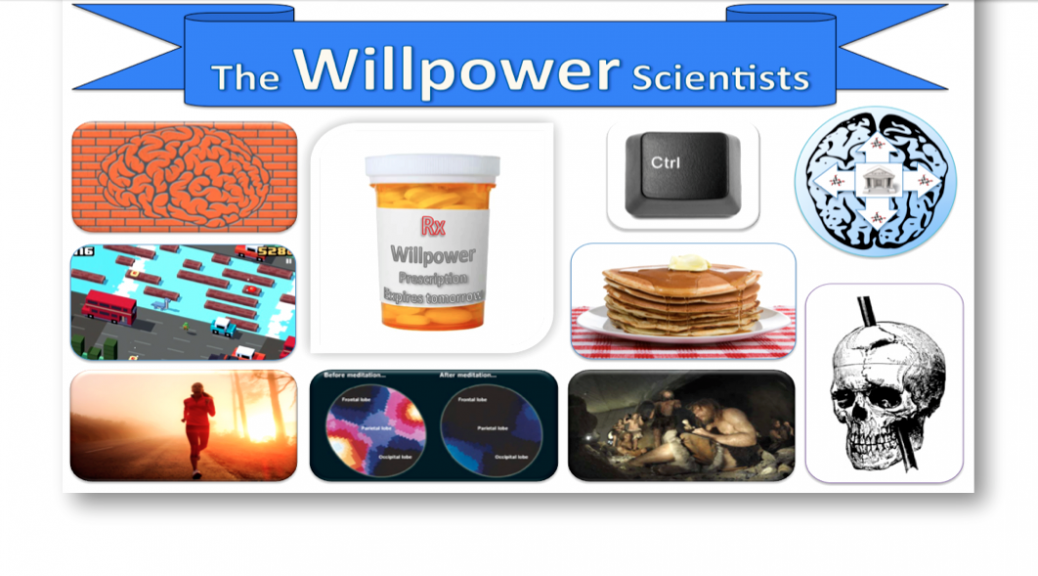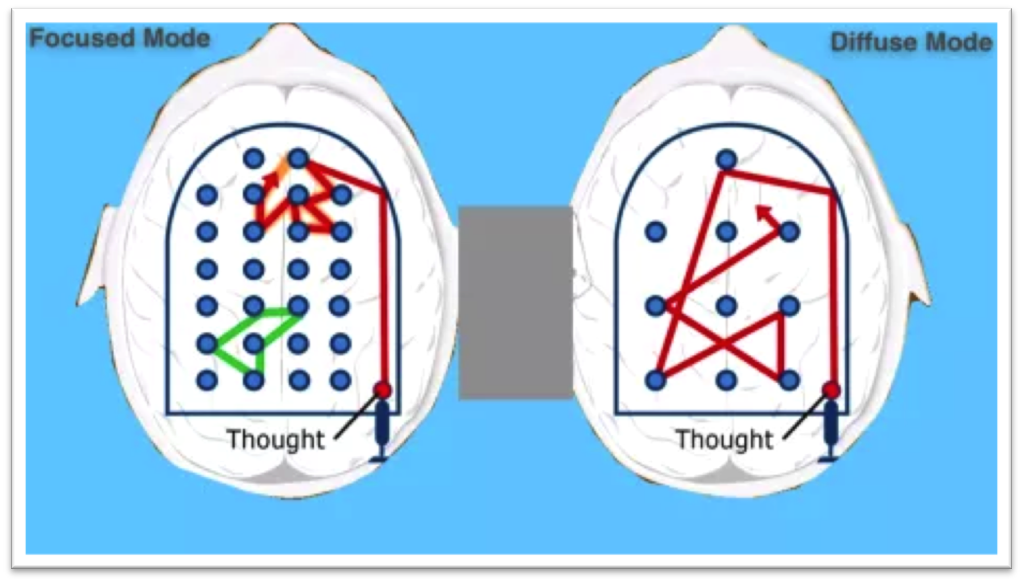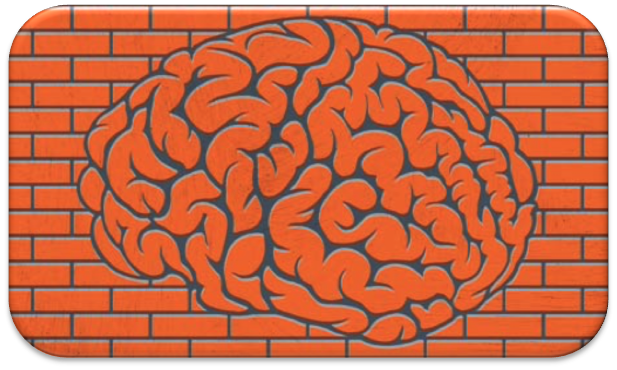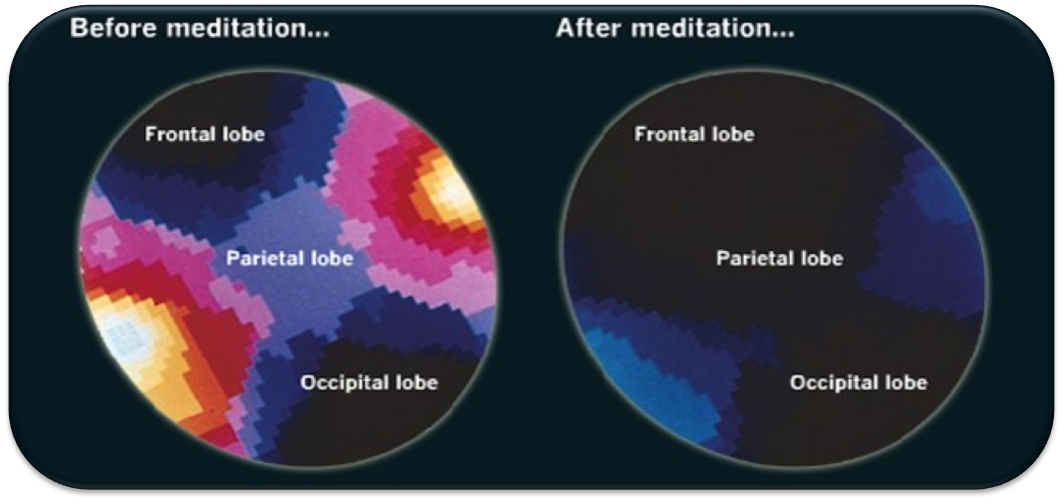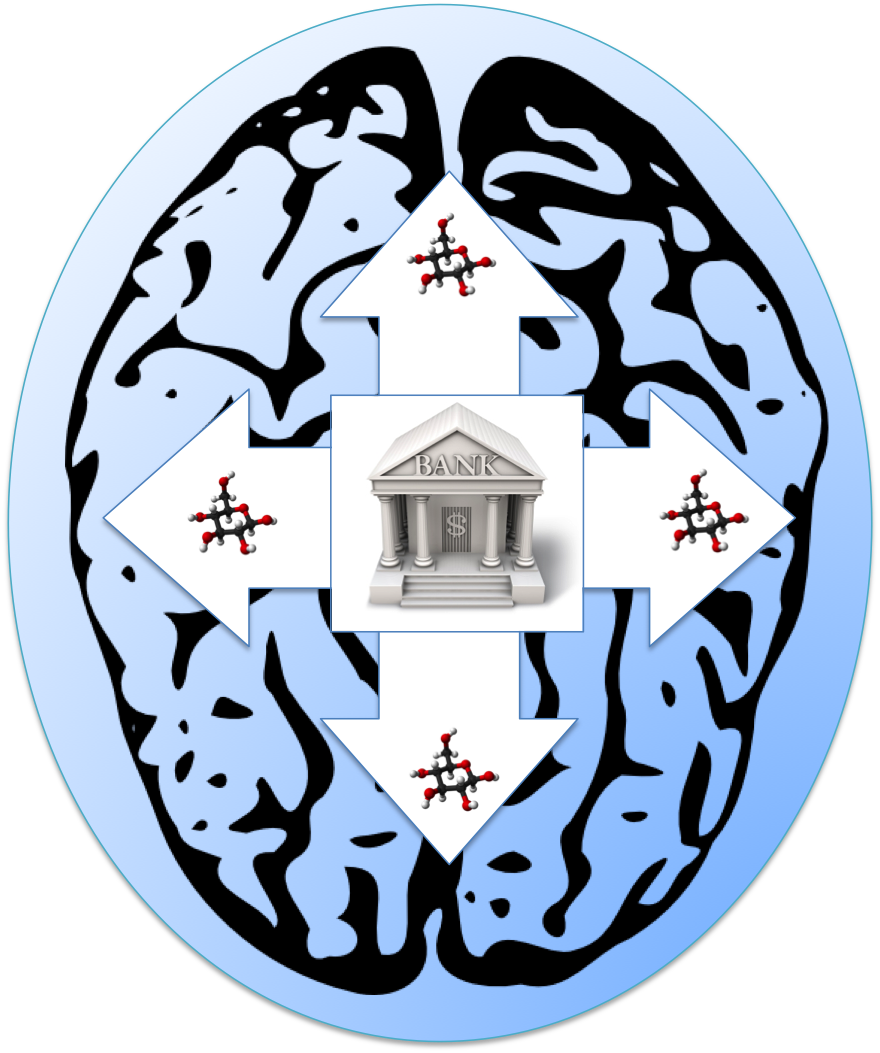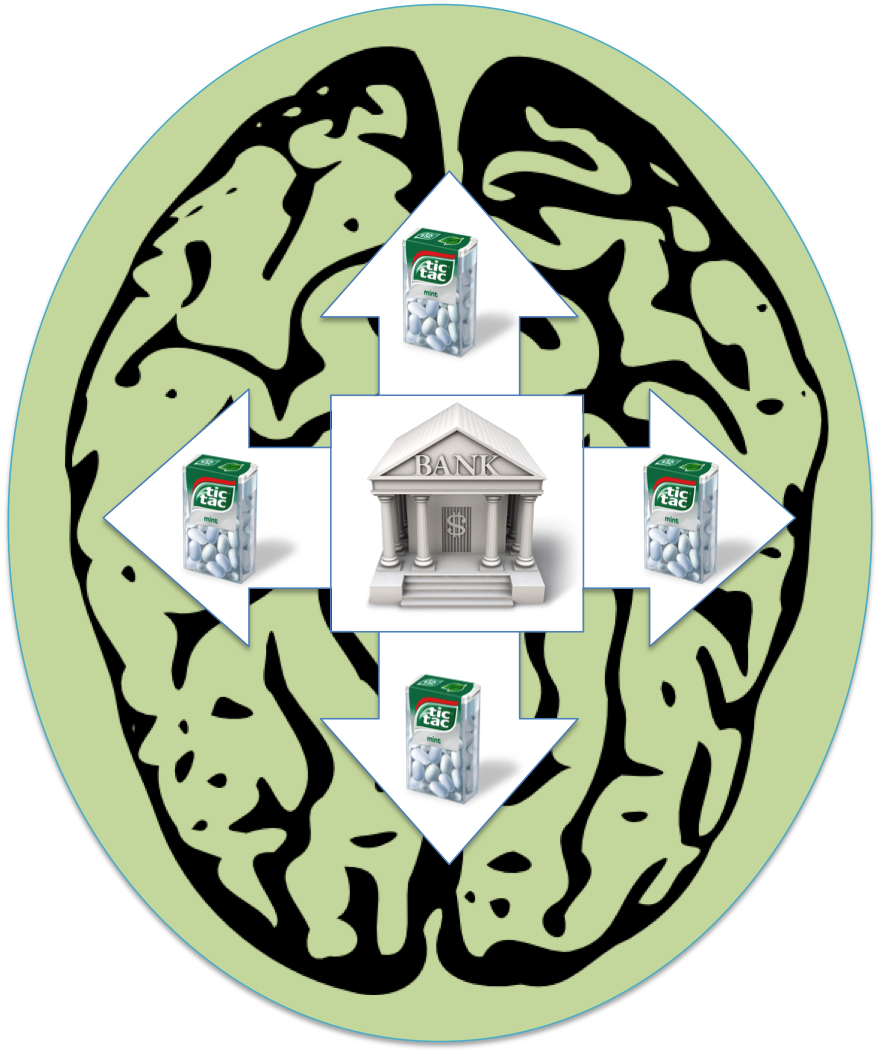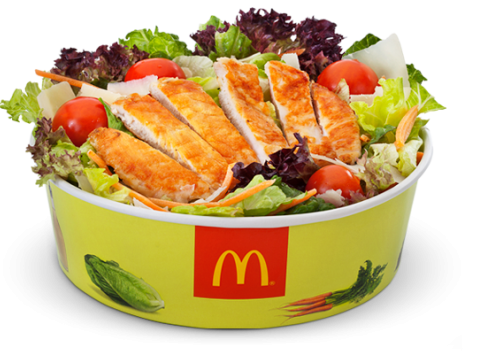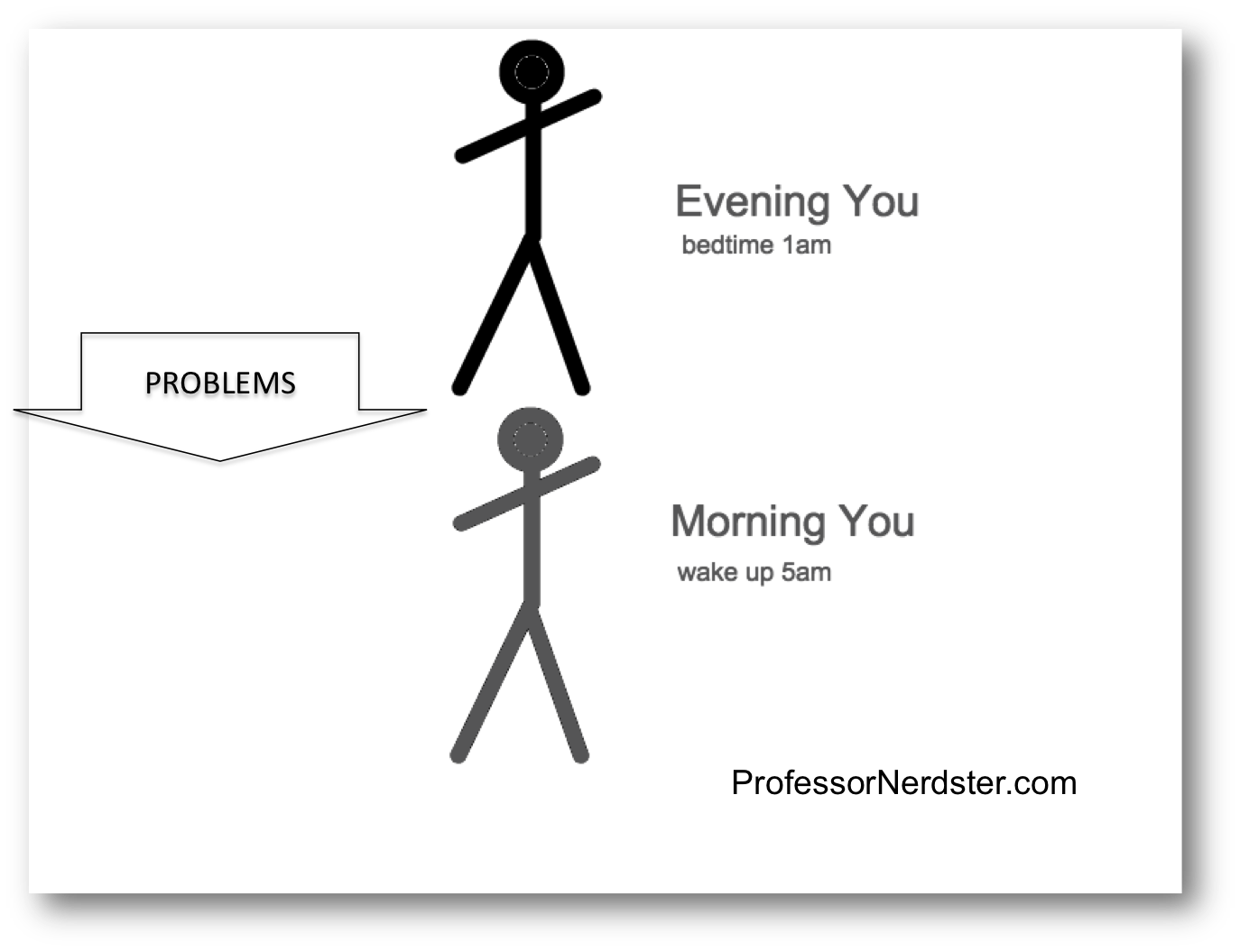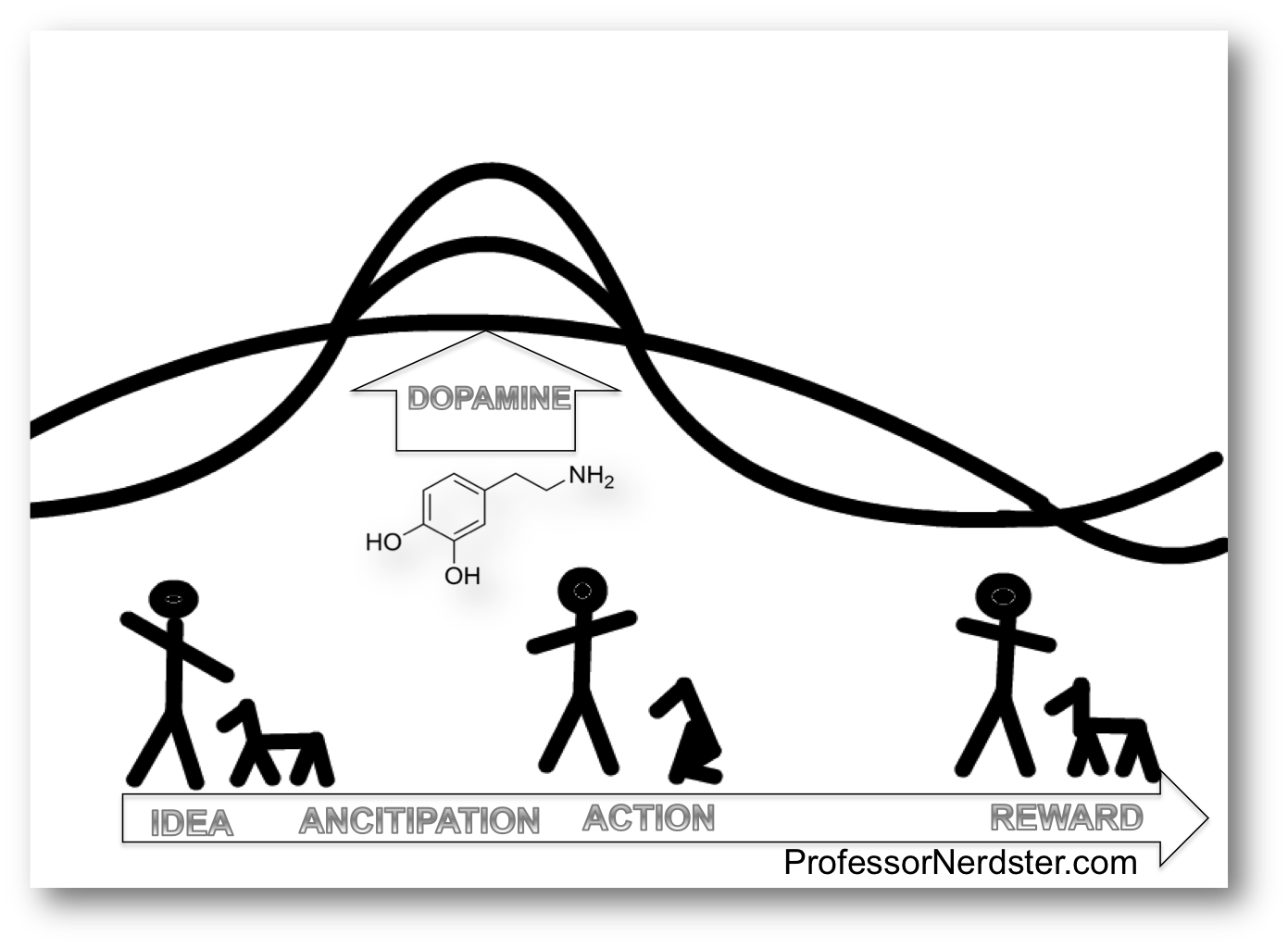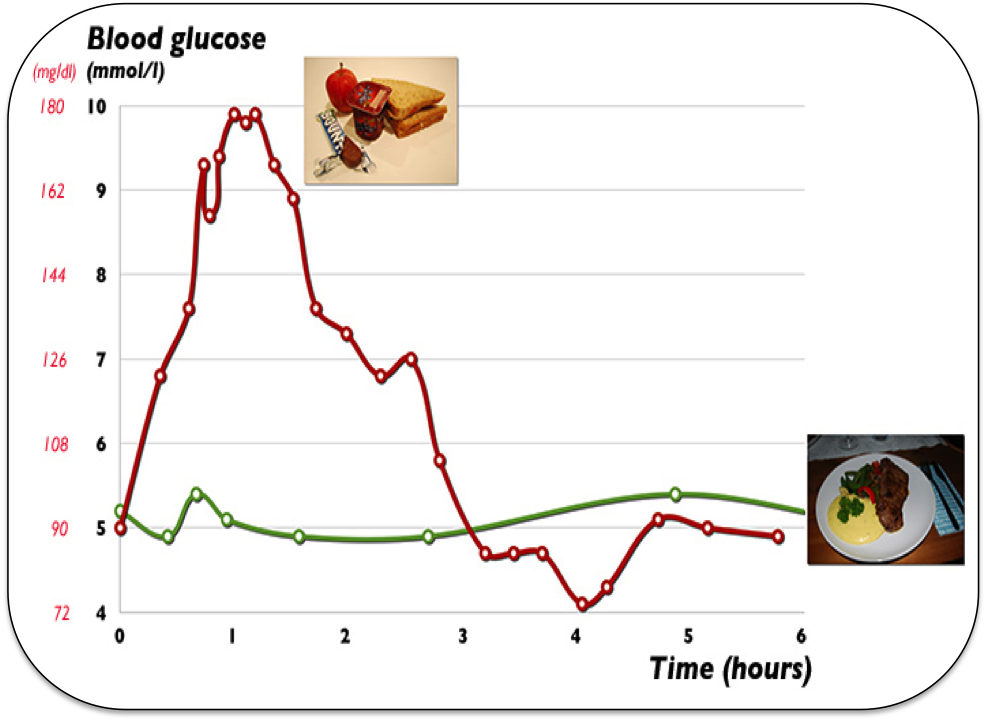Reading time: approxiamately 55 minutes.
Introduction | Becoming a Willpower Scientist
Have you ever set a goal but then failed to follow through on what was required to achieve it? This article is about re-crafting your mind to get things done. Our journey through the foothills of the mind starts with Kelly McGonigal’s book The Willpower Instinct. This book is an enlightening, peer-reviewed classic. It has helped me understand how brains generally work regarding doing tasks. In the process, McGonigal’s book has helped me to optimise my mind. It might sound lame to even have a planned journey to meeting goals but life is better with plans then without them. I’ve learned through doing online marketing that making minor changes can have a huge impact. Doing search engine optimising forced me to constantly push for new technical change requests on websites and analyse data using Google Analytics. This data experience gave me the patience to improve e-commerce sites that I had a minority share in seeing improved. Through effort I could see progress in organic search rankings for my clients but I noticed that I as a person was not improving because I had not conducted an audit of something more important then a website: myself. What am I eating? How well am I sleeping? Why does my mood change inexplicably? So this analysis of websites created a new focus internally in optimising myself.
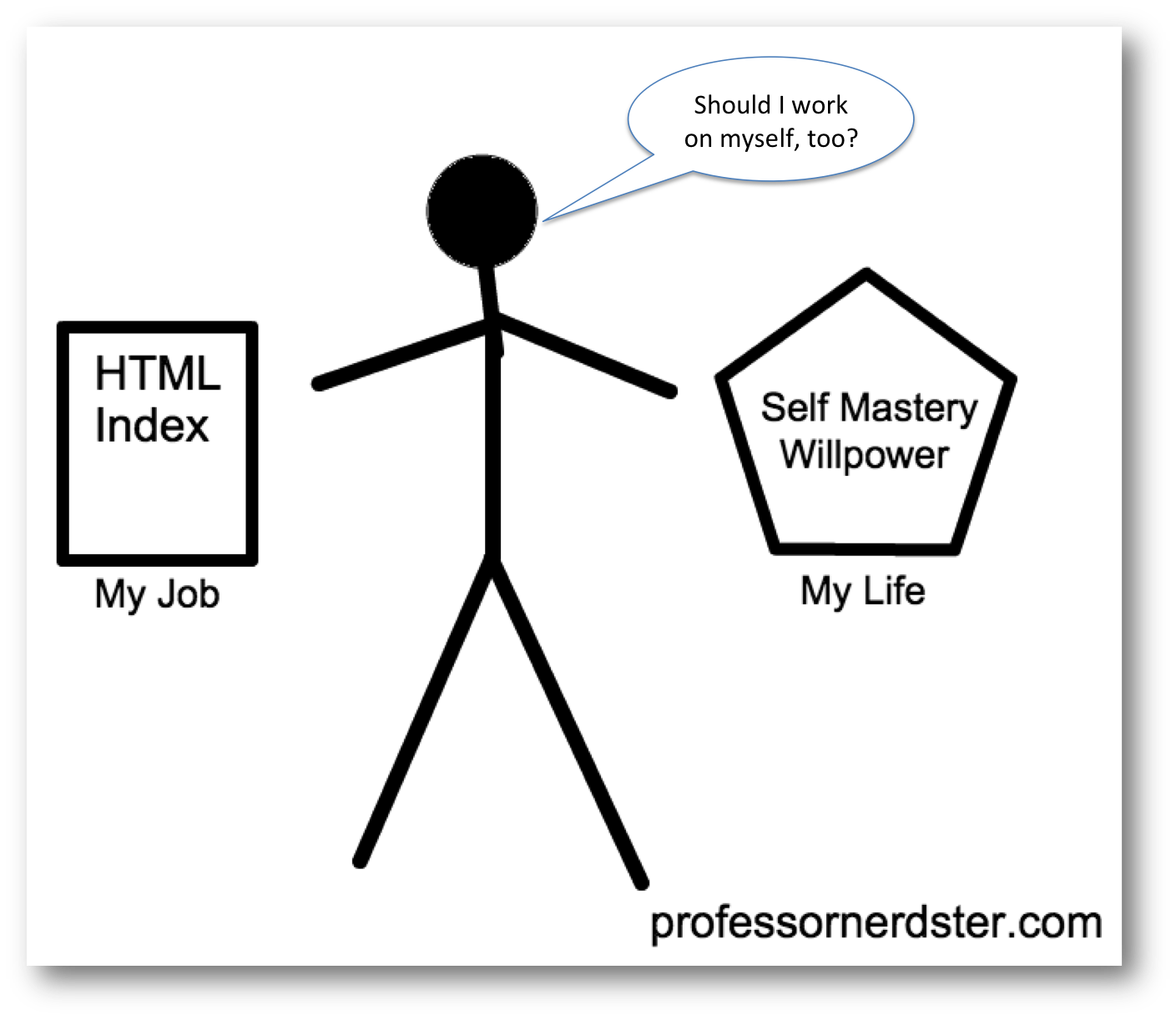
To improve myself, I did things like buying a Lumi Light, which is a light that simulates the sun’s rays (I’m living the UK…) This is one thing that’s very helpful if you want to improve your mood, especially if you live in northern climates or the southern hemisphere climates where the sun isn’t out for a long period of time throughout the year.
 You’ll discover that it’s excellent to have a Lumi light, for example, to help with any issues you have in terms of unexplained sadness. And then having sufficient Vitamin D is also key so take a supplement after consulting a doctor. You’ll want to gain access to that sort of vitamin production somehow though. And it’s not possible naturally without sunlight….
You’ll discover that it’s excellent to have a Lumi light, for example, to help with any issues you have in terms of unexplained sadness. And then having sufficient Vitamin D is also key so take a supplement after consulting a doctor. You’ll want to gain access to that sort of vitamin production somehow though. And it’s not possible naturally without sunlight….
So the sun’s a very important fixture in everyone’s life. But British people don’t know the sun which explains the disposition on the British Isle. Not everyone is super nice in the UK. Could be me…probably is my fault but whatever. Once you’ve got yourself motivated and sorted internally in terms of mental balance, and I can’t say that this will be for everyone anyway, but it’s a good thing to TEST. Do get a SAD lamp and get some vitamin D. Once you get that sorted, focus in on how to optimize your brain, particularly the pre-frontal cortex. Say what, you ask? Patience…..
How to get the most out of this Article:
- Self-reflection is key; study yourself;
- Apply the scientific method to track any changes you implement;
- Track your progress in a spreadsheet if possible;
- Challenge yourself: What you WILL do (doing things you normally avoid), What you WON’T Do (ending negative activity), What you WANT to do (complex goals setting)
Remember that a strong willpower = a strong future. Improved willpower is the best way to change your life for the better, assuming you know what is needed to optimise your future. So following through after you’ve read this article is key. Start doing meditation consistently (for example) because that is about controlling your brain which is essential for improving your willpower.
The Optimised Brain
There are two states of functionality in the brain. One is the focused state and one is the diffused state, according to Dr Barbara Oakley. Let me talk to you about that in turn. The focused state is the state where, in the frontal cortex, you have four working memory slots. In those four working memory slots are tentacles, you might say. They’re reaching into different sections of the brain and pulling in data in order to achieve a very focused and important task.
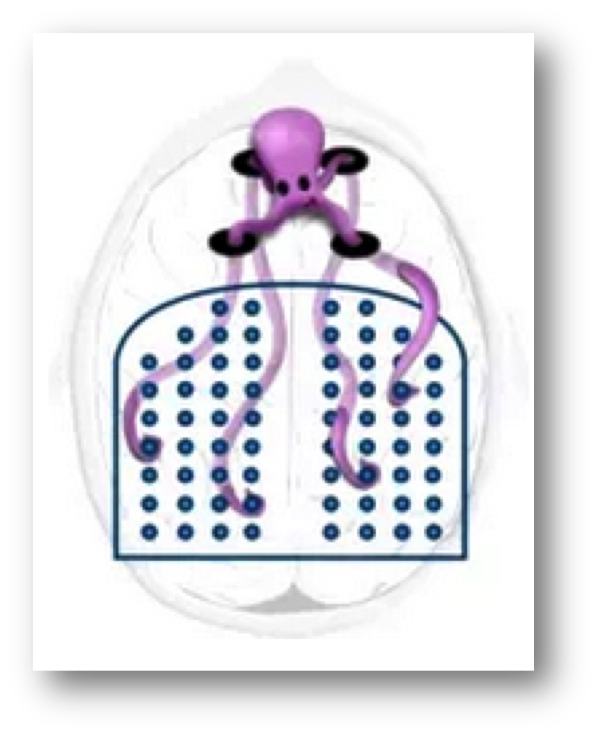
So if you’re doing some kind of problem solving or math or trying to eat food or anything that requires concentration, you’re pulling in ideas through these four working memory slots and they fit within a parameter and in a system…Your brain is focused on a specific outcome in the focused state.
The diffused state is when the brain is free in that there’s no central focus. But there’s content ideas and thoughts that are being pulled and reworked and restructured and freely moving such that you can come up with creative new ideas only in this difuse state. So ideas that have never existed before for example, a banana on a bridge wearing a monkey hat, that sentence may not have ever been created before. And hopefully, never again. But you’re being creative even if it’s useless to an extent. The diffused state will definitely liberate your mind and allow you to achieve different things. What does this have to do with willpower you ask?
The Willpower Scientist is what I’m calling a person who dedicated themselves to improving their prefrontal cortex and is focused on optimising their performance in decision-making and optimising their performance, on rejecting and abstaining from things they know aren’t good for them. The Willpower Scientist focuses in on creating a better quality of life for their future self, not just their current self. And that’s the most interesting element about what Kelly McGonigal’s book has done. It’s opened up my thinking on the development of Willpower. And in the process of conducting my own primary research, I’ve fused McGonigal’s work with other experiences and knowledge to deliver this article with the hope that it improves your life.
Of course, I know you don’t know me & don’t trust me any further than you could throw me which depending on your muscle strength would be about 1 meter or less….BUT trust me this willpower stuff works.
The Basics of Willpower
Willpower = Control Over Decision-Making = A Higher Standard Of Living
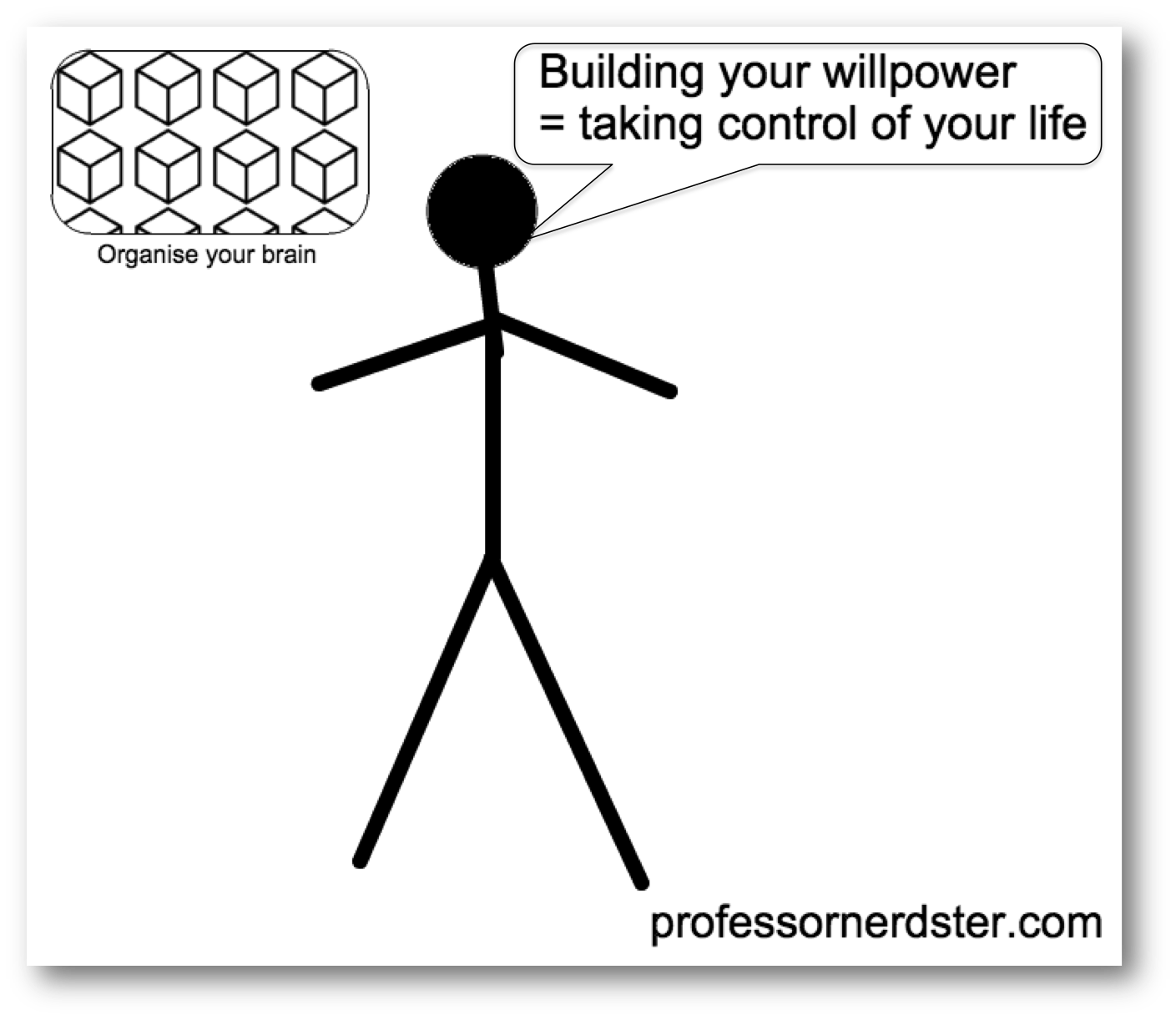
Your ability to stop smoking, ability to study long hours in a focused manner, the ability to reject the opportunity to consume cheesecake or chocolate, the ability to get homework done on time, the ability to be more productive at work; it’s a fantastically important skill to develop willpower. And the most critical thing that I always run into when I speak with people about this say that “Well, willpower is actually a static item. It’s established and a concrete function of the brain and cannot be improved, cannot be optimized in any way.” And typically, these folks will not already be aware about neuroplasticity, which is a concept that companies like Luminosity and others are commercializing order to build more brain functionality. And the truth is I’ve always been a liberal person in the sense that I believe in self-mastery that I can choose to be a better self, it is simply up to me. And that idea can also be applied elsewhere, wherever you would choose to be your better self, and you would grow into the person that you want to be. So if you don’t think you can be creative, well, someone who’s liberal within self-mastery says, “Actually, I can shape my brain into becoming that person if I so choose if I have the willpower to do it.”
Willpower Failures
For a classic example, even five years ago, I really wasn’t aware of the power of self-discipline & willpower in its full sense. And I lived in France, Le Mans, France. There I taught English. I was exposed to the French language every day. And yet I felt that I couldn’t really improve my French. There was a strong undercurrent of reasoning and rationale that I applied for explaining this lack of fluency in French. For example, that the French language was dying globally, that the French being spoken wasn’t the same as the French that is spoken by my sister who speaks Québécois, that I was not predisposed to learning a language, etc., etc. A lot of excuses were applied to justify my lack of effort, but the core underlying reality I knew back then really was willpower – the drive, the ability to achieve and set your mind to something and get it done. And it turns out that my French improved massively while living in France, so my self-assessment was a bit harsh anyway.
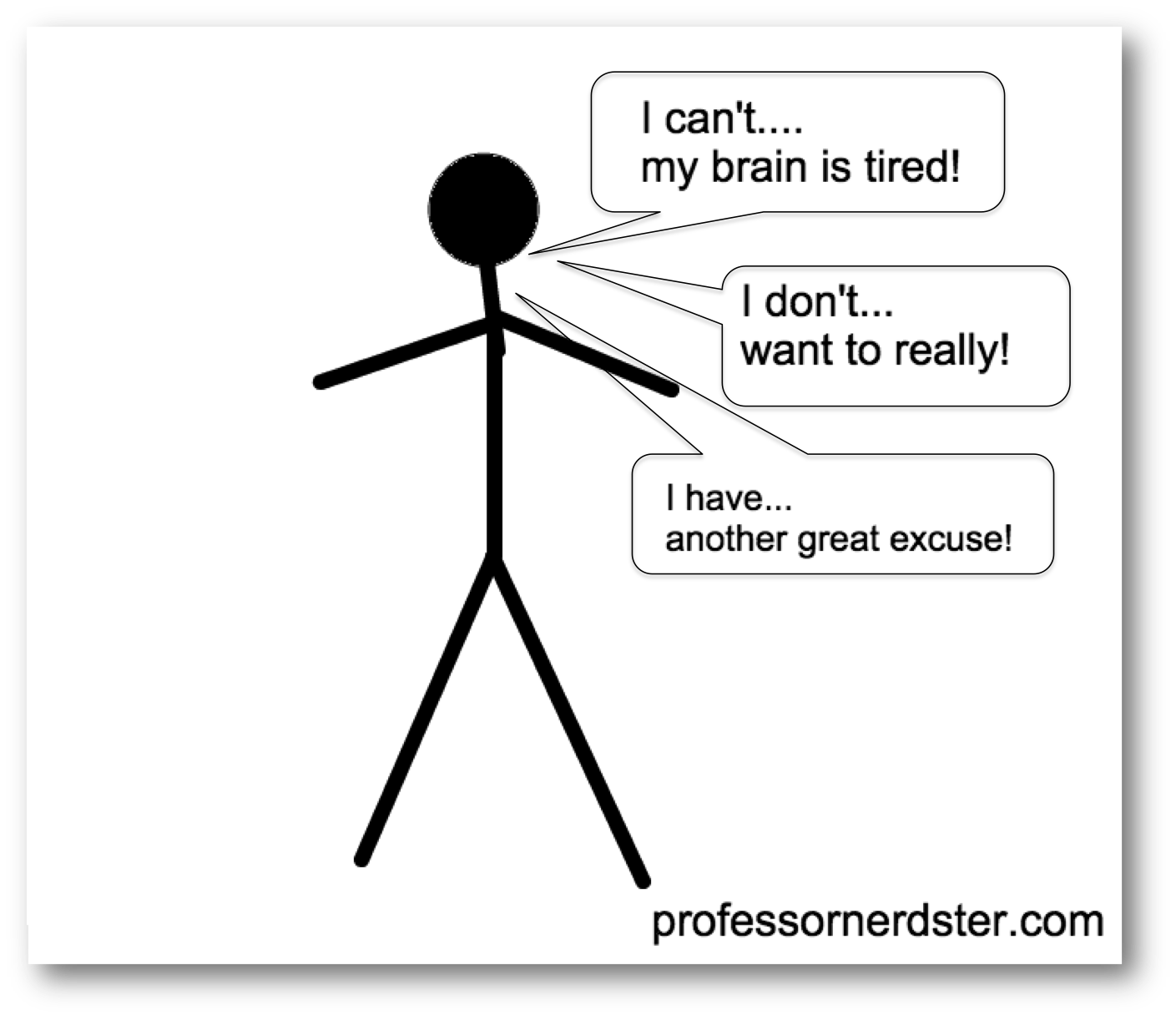
That is what this Willpower Scientist concept is all about. So I encourage you to continue reading. I’m looking forward to getting lots of feedback and comments from you below. Of maybe this page won’t rank in searches, oh well. But I think we can move beyond the basics now.
The Human Brain & Willpower amongst the Cave-People

Pre-History: So before we started optimising websites, we lived in caves. And we lived in tribal communities. And we had a savage lifestyle. And we shared resources within our tribe, but we didn’t work very closely with other tribes. And it was an aggressive dog eat dog world. What happened was that the human brain structure was established and had been modified from pre-human creatures that we evolved from. But instead of simply growing a completely new brain, humans added more updates to the existing brain from each previous generations. In the modern day, the human prefrontal cortex is the largest of all creatures. In the past, our prefrontal cortex was less developed. But the brain is indeed a muscle that we build up all the time. 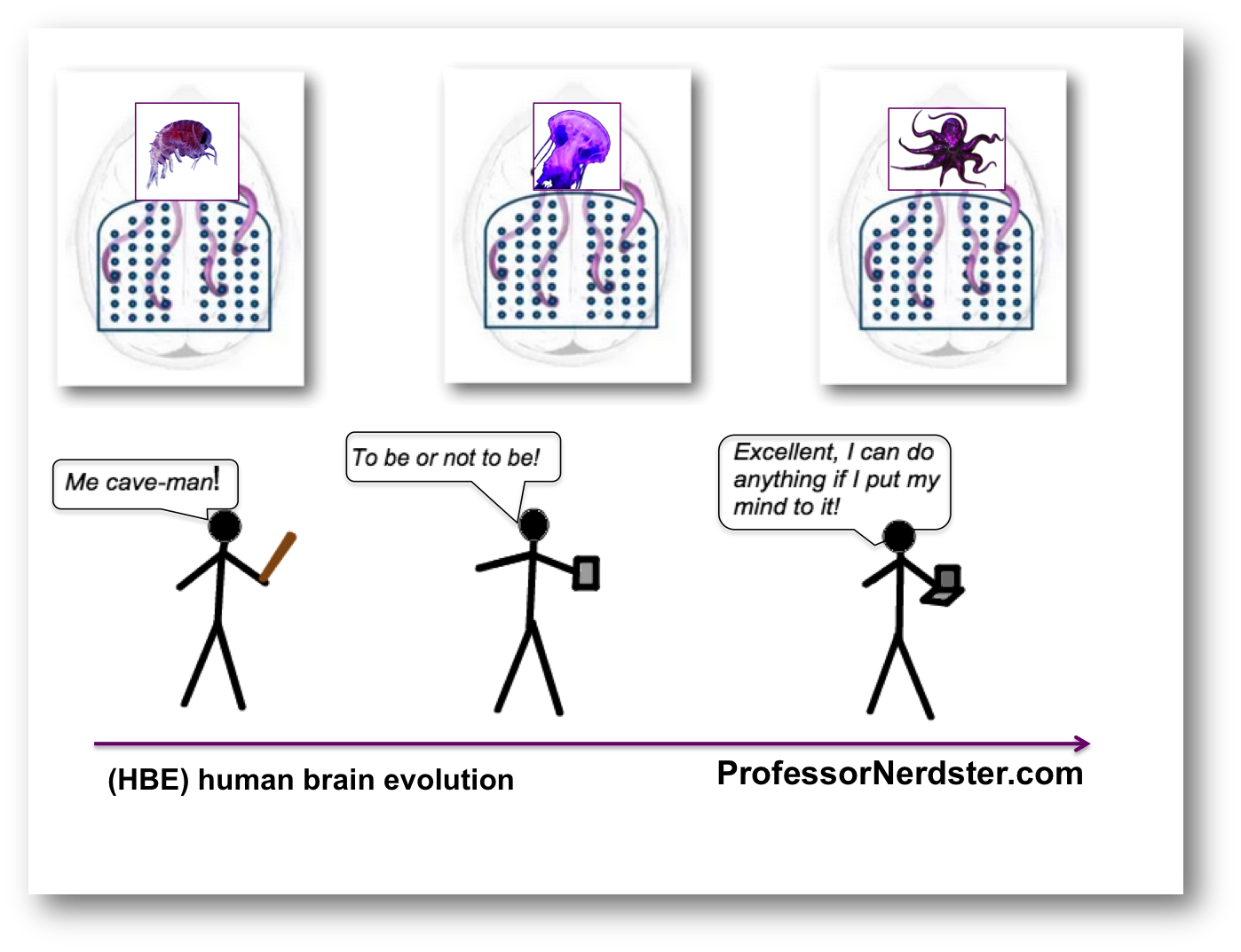
Now the reason for the improvement in the pre-frontal cortex is that we had built up our prefrontal cortex through increased complexity and we built up our willpower, our mind, our brain historically. So you can actually track within the brain three different areas: the “I want” willpower center, the “I will” willpower center and the “I won’t” willpower center, according to McGonigal. These three substructures within the prefrontal cortex existed in the prehistoric times (probably). Now, you can just imagine sitting in a cave with your girlfriend or wife or husband planning out your meals for the week. But the sophistication of that world was fairly limited. They didn’t have the internet, for example. But, what happened was the human brain, at that time, was very instinct-driven. And there wasn’t a methodology in place to control the prefrontal cortex or guide it in terms of making good decisions.
Building External Systems of Control
Because of a lack of brain control, mythologies were developed. And the smartest people basically came up with story-telling techniques to get people to do things that they wouldn’t otherwise do. And they dressed those up in religions, as they call them, or theologies or systems to convince people that there was a third party individual who was overseeing the entire existence of the universe and, therefore, was the core person of interest that we should be working towards satisfying – that person or that entities, deities – in order to achieve the objectives of the people who came up with the stories. I don’t dispute the existence of God on a personal level for myself….
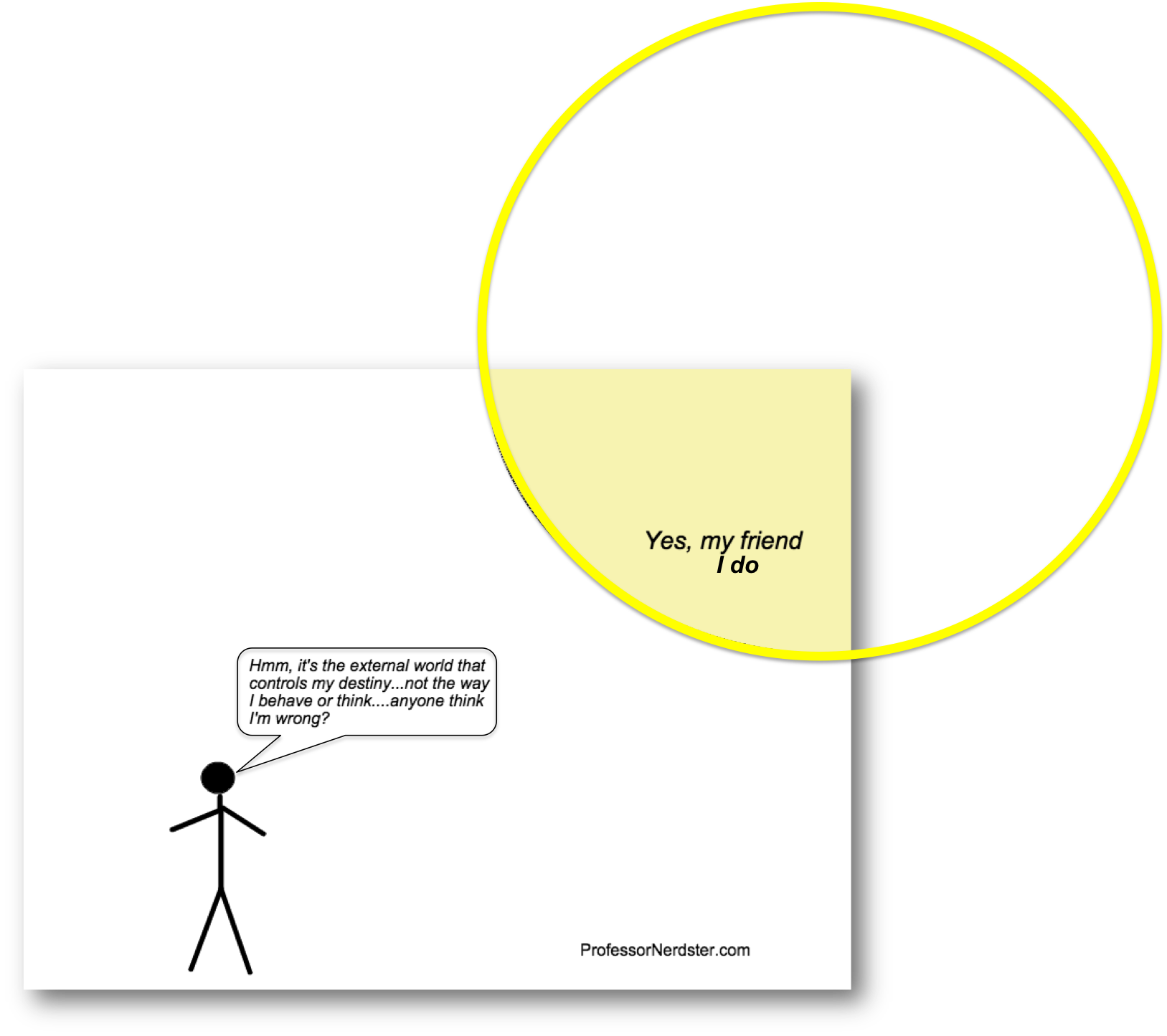
BUT if you told yourself that you would be chained to your desk for 7 hours then you would likely get more work done than someone who doesn’t tell themselves they will be chained to their desk. Restrictions breed productivity. So the side effect of religion is that we built in legal structures. Eventually, there was a legal system that evolved from that external governance of the self. But the legal system is just a complete reaction to the realities of the cave. That there were people who would murder each other for food, steal their wives, have sexual relations with their cousins. Say what? Then they realised that the genetic pool of those kids that were a product of that relationship were of lower quality. So they said “Okay, we need to diversify. We need to meet new people.” All these sorts of learnings happened over millennia. Like, a million years. So the human brain has been in the process of slowly evolving and inventing changes to its prefrontal structure until reaching the modern-day status. As I mentioned earlier, humans have the largest prefrontal cortex of all creatures on earth.
Phineas Gage & The Pre-Frontal Cortex
Now, why is this important? Well, let me just tell a quick story that Kelly talks about in her book. There’s a railroad foreman.
And this fellow was a top-performing foreman manager witth such good decision-making skills; he was very respectful and well respected. His physician described him as being competent and reliable and having a willpower of steel and a body of steel. However, there was an incident at work that changed his life. He & his compadres were building a railway through a cave but there was an explosion and a piece of debris passed through his left cheek through his brain and massively injured his prefrontal cortex. Now, you would expect him to have died from something blowing through his brain but, in fact, he didn’t die. He survived. And he became an important person historically. . . an often-cited case in neurological science and neuroplasticity science, as well. https://en.wikipedia.org/wiki/Phineas_Gage
 The real discovery was that he had been a changed person after the accident. He lost his willpower. He would curse. He would behave differently in terms of his desires. He would make weekend plans and then abandon them at the last minute. He was just a completely undisciplined person and a weak person and someone completely different from the previous individual. So the basic story here is the prefrontal cortex is direct evidence. . . empirical evidence in this anecdotal story that it is a very powerful centre within the brain. It is the core centre where decision making is made. So decision making is critical when it comes to becoming a Willpower Scientist because when you’re making decisions on a daily basis, you don’t realise you’re using your brain, in particular the prefrontal cortex, in a very serious way. Now, the fact is that you have roughly 500 decisions to make per day, maybe even more, actually. Decisions such as reaching up to turn off the light, decision to eat a bagel for breakfast, decisions to go somewhere for lunch, to buy an expensive item, to in fact just to send out an email. Probably over five hundred to a thousand decisions we’re making per day.
The real discovery was that he had been a changed person after the accident. He lost his willpower. He would curse. He would behave differently in terms of his desires. He would make weekend plans and then abandon them at the last minute. He was just a completely undisciplined person and a weak person and someone completely different from the previous individual. So the basic story here is the prefrontal cortex is direct evidence. . . empirical evidence in this anecdotal story that it is a very powerful centre within the brain. It is the core centre where decision making is made. So decision making is critical when it comes to becoming a Willpower Scientist because when you’re making decisions on a daily basis, you don’t realise you’re using your brain, in particular the prefrontal cortex, in a very serious way. Now, the fact is that you have roughly 500 decisions to make per day, maybe even more, actually. Decisions such as reaching up to turn off the light, decision to eat a bagel for breakfast, decisions to go somewhere for lunch, to buy an expensive item, to in fact just to send out an email. Probably over five hundred to a thousand decisions we’re making per day.
The Pre-Frontal Muscle
So we already have a natural system in place where the prefrontal cortex is a fairly competent state as a muscle. So if you could imagine the prefrontal cortex as a physical body part, as a muscle, it would probably be the upper part of the legs, probably the most used muscle. Or perhaps the tongue, probably, which is another highly focused muscle. Now, what the Willpower Scientist does is say “No, we’re not just going to say ‘Okay, we made some good decisions.'”

Truth is we make bad decisions. We make irrational decisions. We make decisions that harm our future self. So we need to sort of focus in on how we can optimise ourselves in order to perform better in all these tasks. So let’s get back to this idea then. The core issue at hand is whether or not the brain is fully optimised for these three areas: the “I will” power, “I won’t” power instinct and the “I will not” power. And we need then to take a step back before we move any further and just think about on our daily basis. Where do we give in? Where is our will power weakest?
When We Harm Ourselves Without Internalising It
When we know that we’re doing something bad that has a long-term consequence but we continue to do that thing anyway, is that called stupidity? Example, I eat Ben and Jerry’s on a regular basis. I know that it will have some discernable negative impact. However, I can’t really infer and I can’t draw in any data on it. So, on a rational level, I can’t even say on a very empirical level, I can’t really say it’s a negative thing although I may have been on a different mood and I may have stayed up later because I had so much sugar in my blood. We know Ben & Jerry’s will make us fat but we do it anyway because we are focused on the pleasure of now…
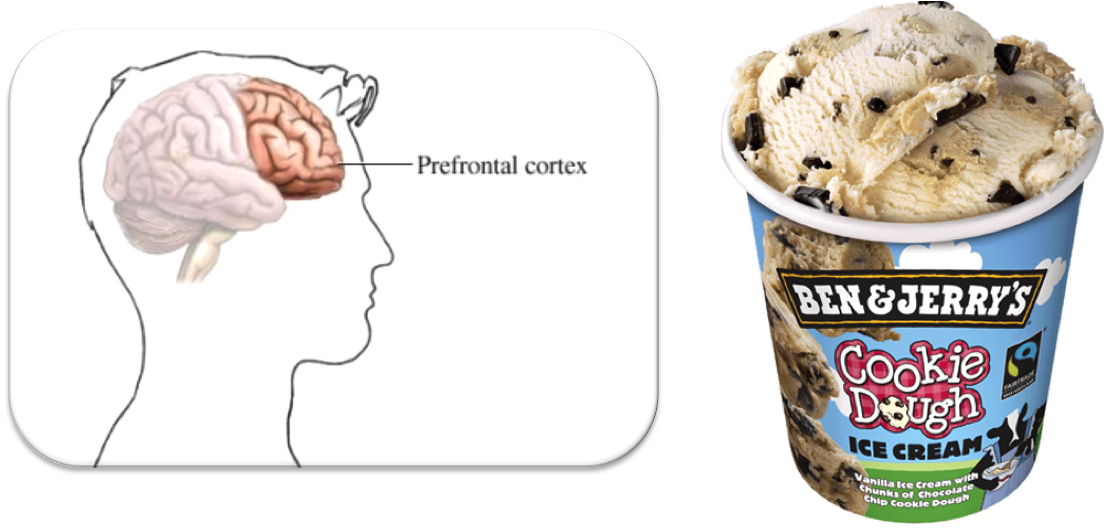
So the biggest take away from the Phaneus Gage story is that actually the brain is a malleable object. It is a neuroplastic item. And it can be improved. If you start doing math problems on a daily basis for five months, you’re going to get pretty good at math. If you dedicate yourself into worrying about your children for the next five months, you’re going to get pretty good at worrying. You’re going to basically shape your brain. You can change your brain. That’s the most fascinating thing that comes out of the Willpower Scientist approach. You can actually restructure your brain to achieve whatever objectives you want using your prefrontal cortex and willpower.
And that’s the exciting thing. And this sounds hokey. It sounds foolish. You might say; “it’s not going to work for me.” And the natural thing is to always say, “Actually, isn’t that the case that our brains are basically set in stone? We have set number of brain cells and they just kind of decline over time.”
No, that’s actually wrong.
And the science is coming out to demonstrate this. This isn’t some kind of religious, spiritual solution that I’m offering. But it’s actually the case that the brain is plastic. It can change. You can, over time, reshape your brain and harness it. You can change people’s minds over time as well. It’s like any other muscle of the body. It’s like saying that you can never gain 300 pounds. Well, you can. You can completely gain 300 pounds. That’s a physical thing. And the brain is no different from the physical realm because the brain is part of the physical self. And you cannot escape that fact. So, for example, you can lose 25 pounds if you so desire. It’s not even a question. Anyone who believes they can’t do it is just completely old school in their thinking, they are looking at the past and noting how most things stay the same….our ancestors from the 20th century weren’t thinking that smartly. We can do much better than them.
The Frozen Brain
We in the 21st century, we need to go fix a bunch of problems. Problems of the self, of the earth etc. And it’s because people in the 20th century didn’t have the willpower needed to make better decisions for the long-term. And one of the biggest problems of all, within Western society, is the idea that the brain is static. As you get older, you lose your interest in the growth mindset. That it cannot be improved. That it cannot be harnessed and it isn’t actually a muscle in the sense that the legs are muscles, the feet are muscles. At the core of it, the biggest issue is how do you know if you’re actually exercising all that well, right? You can still do 15, 20, 30 minutes of exercise and not even break a sweat. The question is are you actually pushing your muscles in your body to achieve objectives in an aggressive way to enhance the performance subsequently?
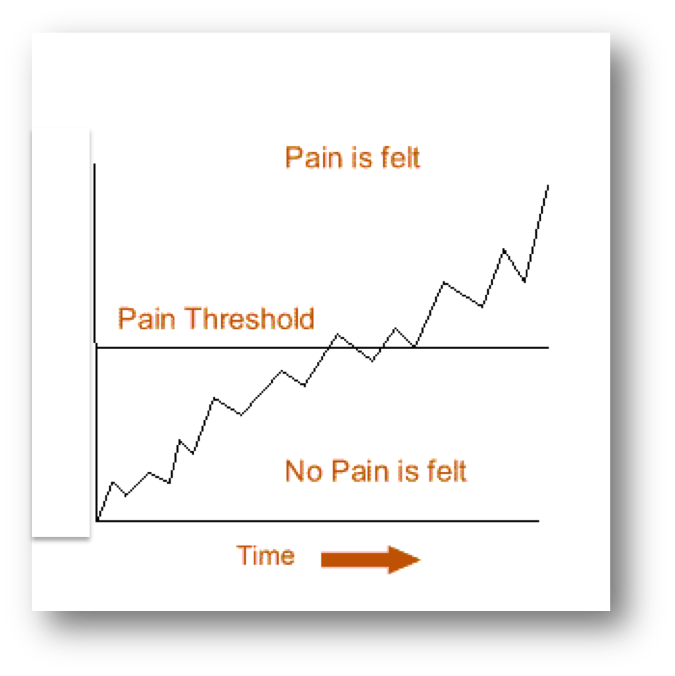 The same logic applies for the brain. Are you actually really pushing your brain? Are you really focused? Are you really meditating properly? Are you really in a balanced state? Do you have sufficient glucose in your prefrontal cortex and do you make the best possible decisions? Are you healthy mentally? Are you healthy physically? You need to ask those questions because actually a lot of people just assume that they can’t improve themselves but they don’t look at the empirical evidence of whether or not they are pushing themselves to achieve those objectives. If you think that your performance is limited by a pre-determined IQ then you might not realize that you can push your brain to grow.
The same logic applies for the brain. Are you actually really pushing your brain? Are you really focused? Are you really meditating properly? Are you really in a balanced state? Do you have sufficient glucose in your prefrontal cortex and do you make the best possible decisions? Are you healthy mentally? Are you healthy physically? You need to ask those questions because actually a lot of people just assume that they can’t improve themselves but they don’t look at the empirical evidence of whether or not they are pushing themselves to achieve those objectives. If you think that your performance is limited by a pre-determined IQ then you might not realize that you can push your brain to grow.
Watch Out for Grizzlies
One of the key understandings that has to happen to become a Willpower Science is the core concept that you need to pause and plan.
Pause + Plan
Your brain needs to take a step back before it makes any decision and say “Is this is the right decision objectively.” And the willpower of an individual is ultimately being tested. Willpower is designed to allow the individual to get control of their own life. Now, imagine it’s 50,000 thousand years ago and you’re in the forest of northern Alberta, Canada. And you see a bear hiding behind an evergreen tree. And its teeth are pointy and it’s looking at you after sniveling its salmon and it looks keen to eat you next. Your body’s natural reaction is to either fight or flight.
Engaging fight or flight. The best instinct, in this case, probably would be for flight. Although, technically, with regards to dealing with bears, there’s another solution which I won’t get into. Multiple solutions involving loud noises, etc. The core point here is that your brain has a small hormone-excreting part of the brain called the amygdala. What the amygdala does is because its centric in the brain, it can communicate to every part of the brain most quickly to get instant trigger reaction responses. So when it gets triggered, it will tell you “Fight or Flight.” And you will just execute on that without thinking about it. Now the point here is that the amygdala instinct is something that disengages the rational thought processes in the brain. In other words, the frontal cortex gets disengaged and put to sleep or downplayed in its impact in order to allow you to survive in the moment.
Genetically, that’s how we have developed with this ability to disengage rational thought and just solve the problem without over thinking. The problem is you would be over analytical perhaps and think, “Maybe this bear doesn’t want to eat me. Maybe I should talk to the bear. Maybe I should reason with the bear.” And that’s when you get killed, right? This is the human brain 50,000 years ago. Enter today. What are the temptations that exist today? It’s not a bear. It’s Ben and Jerry’s. It’s procrastination. It’s not getting things done. It’s not following your dreams and achieving your true potential. So these are the threats. They’re obviously not the same kind of threats. When you see a jug of Ben and Jerry’s ice cream, you probably will be instinctively driven towards consuming that immediately. The challenge is with Willpower to say “No. Let’s not eat that Ben and Jerry‘s.” And that’s what we need to explore further.
Heartbeat Indicator
There are a couple of scientific studies that show that variations in heartbeat indicate your willpower status. So if your heartbeat variations are quite high, you probably have a higher willpower threshold. So you can turn away Ben and Jerry’s if you have a heartbeat that goes up and down on a regular basis at a greater rate. However, if you have a static heartbeat relatively, consistent heartbeat in your life, you will probably be more susceptible to Ben and Jerry‘s, according to the science McGonigal is quoting.
This is the scientific study that has been conducted. In the study, basically, what they did was they gave people an item that they were tempted by and placed that item in front of them and studied their heartbeats. The people who had consistent ability to reject that negative thing, like a pack of cigarettes, would have a higher heartbeat variation as soon as they saw the cigarette. I don’t fully understand why that is, but it apparently Willpower required more blood processing.
Exercise Control
Next, there is this idea of exercise which is contected to the heartbeat. Exercise actually enhances the willpower of individuals because you are controlling your mental state. You’re accelerating your heartbeat, that’s for sure. But you’re also commanding yourself to do something. And that requires the prefrontal cortex to engage and command the body to make certain decisions, i.e. putting one foot in front of the other or whatever the exercise might entail. Exercise is the number one RX for willpower. It’s like a miracle drug.
Exercise will not only make you feel fantastic at the end of it, often it will reinforce your willpower’s control over yourself and your future. And you’ll have self-control. That kind of reward system is also good because not only do you feel good after it, you actually will gain more energy through exercise. And you’ll have more willpower as well. So you’ll be a more successful person just based on doing a couple hours of exercise. An hour. Just kidding. You can actually do, according to some studies, only five minutes a day and you’ll get significant benefits in terms of your willpower and your well-being. So just only five minutes a day can actually trigger the control of this willpower.
Pause, Plan, Meditate
The next idea, as I already mentioned, was pause and plan. That’s what we need to do when we’re dealing with willpower. So if you pause and plan your day, pause and plan your meal, pause and plan whether you want to have a bowl of Ben and Jerry’s or not, you will, by definition, choose the more rational self, the more rational decision. And the one that is bringing you closer to the willpower scientist mode of thinking.
So, particularly, why is meditation so powerful? Because if you’re regulating the rate of your breathing if you’re regulating that regularly, your brain is being co-opted. It’s being forced to change a natural metabolic state of being. So that is critical to owning your brain. And you can actually perform better based taking control of a metabolic state.
Glucose = Brain Money
Another important idea to understand is that you can have temptations but you also have other factors on whether you stick to your goals. The killer problem is actually in your brain’s current reserves of glucose. So you would see a bowl of Ben and Jerry’s sitting there. The problem is that bowl of Ben and Jerry’s is really tempting already. But if you’re on a diet, for example, and you’re not consuming very much sugar anyway and your diet is wrong, i.e. you’re consuming no sugar, you could inadvertently actually have a problem in your brain which leads you to invariably wanting to have Ben and Jerry’s. So by having a diet, ironically, you weaken your willpower.
Again, exploring this further, let’s just look at what I’m actually saying here. The brain is like a bank. A bank only lends to successful businesses in good times. Banks hoard their wealth and restrict the amount of loaning that they do in poor times or in times of poverty. It’s the same with the brain. The brain reduces the power of your frontal cortex, your ability to control your body in times where glucose levels are lower than they should be. If you have sufficient glucose levels then you can perform tasks that require more willpower energy. And that’s a key problem. Often in diets, you actually have a lower glucose level and as a result are more susceptible to temptations and the compromising of your willpower. How silly are we human beings, right? Diets actually harm your ability to make decisions like…stay on the diet.
Sleep Much?
Another really key idea about willpower is you probably can’t even remember that you have a good willpower if you get only six hours of sleep a night. You need to be getting 8 to 9 hours of sleep. Some people are different, but I would say around 8 to 9 is ideal. Your brain has toxins in it that need to be flushed out and cleared in the same way that your muscles have toxins in them after exercising all day. Your body will invariably need to clear out those toxins. The same logic can be applied to the brain. Although, it’s not exactly analogous. But we’ll just pretend it is for the purposes of understanding. You need to have a certain amount of sleep in order to ensure that your prefrontal cortex is in a healthy condition to make the key decisions that are required. Interestingly, even taking disco naps or power naps as they’re called, quick naps in the middle of the day will actually restore your willpower to a great degree. And this is quite interesting that companies don’t take this into account, taking a nap at work. A small nap can really boost your performance. And it’s ridiculous that we don’t do that and it’s not culturally acceptable. I think in the 21st century that should change.
The Frozen Brain Too
The willpower muscle; one of the ideas that many people have is that willpower is not something that can be grown. But, increasingly, science has shown that willpower is, in fact, a muscle that can grow. But importantly, willpower has a finite amount of energy and it needs to be restored on occasion and it needs time to rest. So, this analogy is used because it’s quite a powerful one. You can basically build up your willpower. Start by doing small things like agreeing with yourself that you will no longer say “um” in a sentence when you’re speaking. Instead replace “um” with silence.
Or getting rid of the word “yeah” and say “yes” only, going forward in your life. It seems small but could be epic. You can choose these small willpower tasks and they’re like sort of dumbbells. Small little tasks, maybe two-kilogram dumbbells to start off with and then you can build up willpower more greatly and be able to turn down a million dollar sandwich or whatever it is that’s super tempting. The point is, you need to build up this muscle just like the body. If you want to have a strong body, you need to build up those muscles. Of course, the brain is not a muscle, just to be scientific here. It is obviously an organ. The idea then is also with muscles, the willpower muscle needs to be replenished.
Replenshing Your Brain | One Tic-Tac at a time
So what is it that you can do to replenish these muscles? Well, scientific experiments have been conducted in order to demonstrate what is needed. In fact, you can replenish your muscles through water and it flushes out the toxins. The brain and the cerebral frontal cortex require certain levels of glucose in order to persist and to function properly.
In fact, the calculation is it’s roughly half a Tic-Tac per minute in order to have a total full willpower control. And that’s kind of a loose concept because we can’t really define what true willpower is. So, the sugar consumption is a key metric and the analogy people are using now is this idea that like the financial crisis when banks were given large sums of money in the United States, in particular, and they hoarded those instead of handing out that money to small businesses in order to stimulate economic growth. The same concept applies for glucose in the brain. The brain is as stingy as the bankers were in 2009, 2010, etc. It’s stingy when you have low sugar levels and when you have low sugar levels, you’re more prone to the amygdala, which makes irrational decisions that are short-term centric. So if you have an insufficient supply of glucose in the brain, i.e. less than half a Tic-Tac of sugar in the system per minute, your brain will have deplenished willpower capacity, and you’ll make worse decisions. This is why dieting is a problem because if you’re on a diet, you might have lower than half a Tic-Tac in your brain per minute. And that’s why this problem arises.
So, on top of that, the idea is that you basically have this ability to focus because you have a strong level and consistent (hopefully) level of blood sugar glucose in the brain and the body at any given time which allows you to master your own function. The analogy in the caveman story is pretty simple. If you have a low amount of blood sugar, it’s actually quite a good thing that your brain just irrationally goes about and says “I need food now” and runs around and hunts for an animal to try to resolve the lack of sugar. So this idea makes a lot of sense. And the brain is also great if you have sufficient amount of sugar, then you can start hoarding your food and taking care and start building a house and shelter for your family because your brain is at a level of control that is sufficient. But if you’re really starving, it’s actually a good thing if you think about it, to have a sort of willpower deficiency in such a circumstance. But in the modern context, this really doesn’t apply. Well there are actually definitely people who are starving so it does apply. But in this example, I think it makes sense the way it is.
Athletes Push The Boundaries | The Brain’s Quitting Engine
So we’ve actually learned quite a bit about willpower from athletes, in particular, high-endurance athletes. If you’re going to run a marathon and you’re getting really exhausted, there might be a point where you basically feel like you can’t go any further. Your legs are lead. You have no ability to walk faster or run back again. Now there is a physiological likelihood that you are actually exhausted. You are fatigued. But some athletic scientists, kinesiologists in South Africa have discovered that actually the brain is signaling to the body that you’re tired, and that energy levels are depleting at a high rate and, therefore, you should stop doing what you’re doing, whatever it is.
And, in fact, this sense of fatigue is actually an emotional trigger rather than a physiological signal that the brain is getting from the different muscles. So that’s quite an interesting realisation. You’re brain is lying to you. If true, it means that, potentially, your muscles could be going further, you could be more healthy and happy if you just overcame this brain trick that’s being executed against you by your own brain without you knowing. Now the fascinating additional thing there is obviously if this could be applied to muscles then, again, we could apply it potentially to will power. And, in fact, there’s some research on this as well, that your brain’s willpower can deplete, but it could go further if you were to. hone in and really understand and how to harness your brain power and your willpower.
So this fascinating realisation is quite useful because often we have this idea in the scientific community that willpower depletes over time. So at the start of the day you have the highest level of willpower and it’s just slowly declines from there. That probably seems to make a lot of sense and there’s a lot of evidence that shows that willpower does get depleted in the way that muscle does. So if you were to find a way to extend the endurance of your brainpower and willpower, then you could enhance your performance in every aspect of your life. So that’s the first realisation.
Distractions Reduce Willpower
The second realisation is that you have less willpower if you are constantly being distracted. If you’re doing two tasks at the same time, you will actually be unable to focus on one task and the willpower for both tasks will likely be reduced. This is a fascinating area of social and political science. In fact, if you analyse the history of Easter Island, you will learn that that island was populated by a large community which grew & was dependent on the ecosystem of the forest surround it’s townships. By 800 A.D., they had already started depleting the forest of resources at a higher rate than the forest itself could be replenishing through natural means.
By the 16th century, what happened was that the community had a nose dived in terms of development and died out quite accidentally. This is a very long term evolution from 800 AD to the 16th century…Of course, what was happening to these people was that they were focused on that short term rather than the long term. They weren’t thinking about their future self, of course because they did not anticipate being around. They were, obviously, focused on the short term benefits of rapacious growth with each generation looking at what they needed in that generation….
Willpower of Political Leaders
So this kind of behaviour on Easter Island can be applied more broadly to other issues like global warming itself, and the issue that politician aren’t able to resolve this problem because they’re focused on the short term but also because they are distracted by a myriad of issues and thus so their focus is on one issue at a time, instead of focusing in on that climate change issue. Scientists did an experiment called the forest game at Stanford University to explore this behaviour further. They got students to play a video game where users had X amount of forest that they could profit from and they could make money by being a foresting company that, obviously, chops down trees and sells that lumber. The idea was that one group was given a secondary task to do while playing the forest game and the other group was focused 100% on the forest game. The Stanford team let them play for x number of hours like the subjects were playing Starcraft…..Users had 25 game years to see how much money they could make and group A basically failed because they were distracted throughout the test.
group A destroyed the forest consistently. They didn’t band together as a community even though there was potential for inter-communal working and, basically, they sucked at this game because obviously willpower had been diminished by the secondary distraction. The other group (ie Group B) was more successful. The B group was able to allow for a profitable model for foresting as well as replenishing the forest at a consistent rate and, in some cases, they are more successful, far more successful than the A group. So we can try to extrapolate this idea; if we distracted our willpower is diminished and if we don’t understand it, then we won’t be able to harness our willpower effectively and so that’s really what is critical to understand here.
Building on this forest game story; the idea that athletes have this fatigue issue that they can overcome and that, potentially, the brain has a fatigue issue that it can overcome is really exciting as well. The other really critical point and fascinating issue that you run into here is that you can have willpower at a certain rate and you can be distracted by one thing, fighting that urge to eat a cheesecake, for example, but then you’ll go and you’ll eat potato chips at your desk, or you exert a lot of willpower energy to resist something but, by the time you encounter another more impressive or challenging willpower challenge, you’ll be unable to attack that willpower challenge. So that’s fascinating because what’s happening is there is obviously this reduction and then there’s also potential to build up the muscle. So what you need to do is focus on building up the willpower muscle by asking yourself to do menial tasks or small tasks. Just the act of requiring yourself to do these tasks will enhance your mental performance.
Residual Willpower
One specific technique that’s really powerful and proves that you do have residual willpower in your brain is a classic test. If you’re given a task and you are near exhaustion but then suddenly someone throws a hundred dollar bill and says, “Keep doing the task. I know you’re tired, but here’s a hundred dollar bill if you complete the task….”
Suddenly, magically out of nowhere, this money incentivises you to push yourself a little bit further. So if you ever have difficulty achieving a task or quitting the challenge, if you imagine and even just a thought of having more money or having a happier life, just visualizing success actually itself will help boost willpower. And that is one of the techniques that could be implemented here.
License to Sin
The license to sin is quite an important concept that emerges from willpower research. So license to sin, let’s talk about that: when I was in university, I worked as a waiter in a restaurant and on Sundays, we had the church folks come in to order food and I noticed that some of them were extremely demanding and rude for whatever reason. They would be doubly demanding and make very rude jokes (some of these folks at least)….
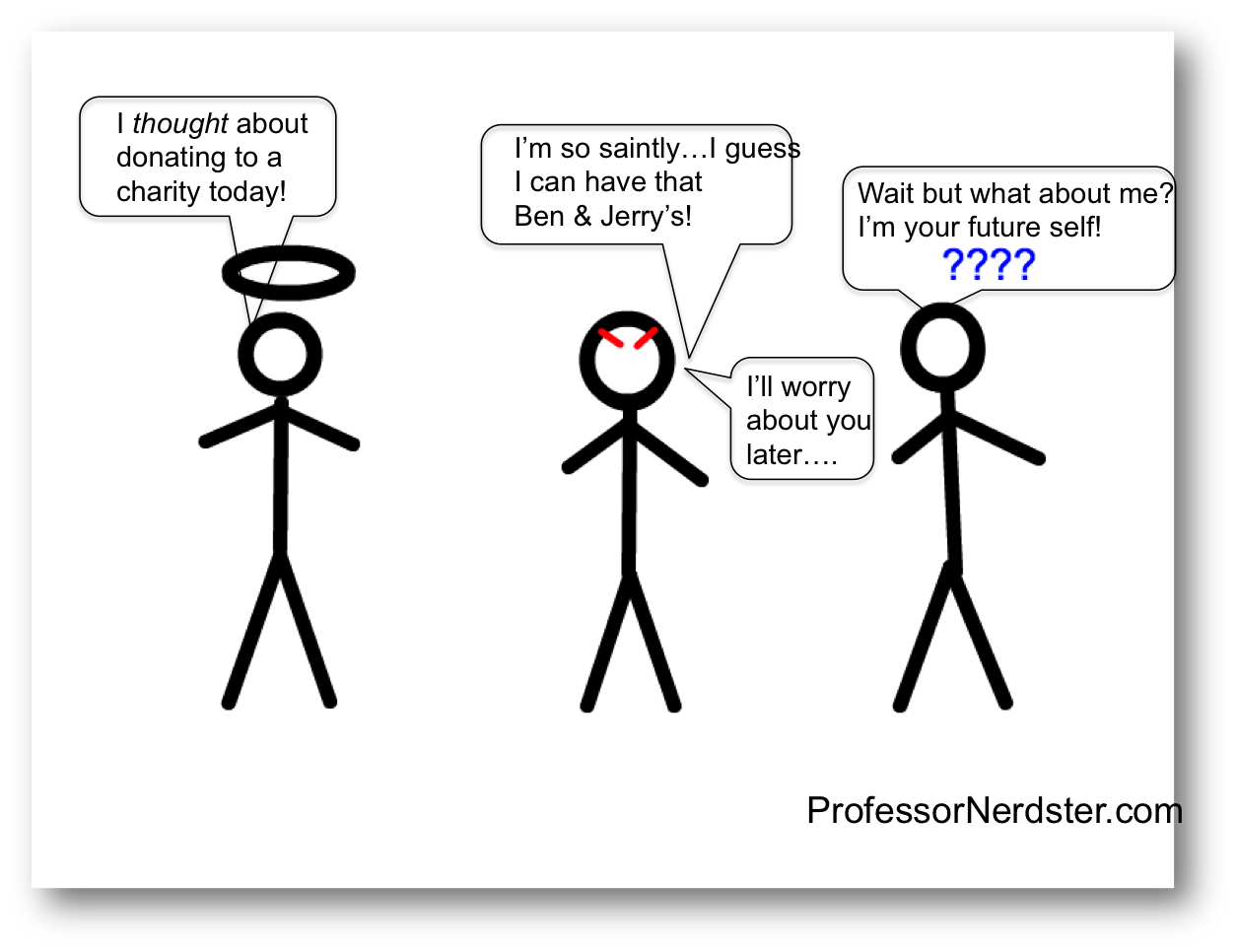
It wasn’t that I forgot to bring the ketchup, their behaviour has more to do with the fact that they had a license to sin. The idea here is that if you feel good about yourself for doing something good (going to church for example), you are more susceptible to being bad. So if you feel that you’re an excellent person, or self-righteous (is the specific term), you will be more likely to sin elsewhere. So, for example, if you’re thinking about giving money to a charity, just the act of thinking about the opportunity to give money to the charity will actually make you feel better, and then that thought gives you the right to spend on more luxury goods or whatever you really wanted to buy. Meanwhile, you have not bothered with the whole donation thing in the end…..the brain is an interesting machine.
Food Temptress
It’s the same idea with food options. So you have these food options and you have bacon or salad on the menu. You have the Big Mac meal…recently McDonald’s provided the option of a salad on their menu. What happens is, after they made the salad available, the sales of Big Macs actually grew rather than diminished and the sales of salads were so-so. Why was that? What’s interesting is the thought of the opportunity to not sin and do something (so called) “good” for you is actually the impetus that many people need in order to commit the transgression or the break a rule itself.
So that’s a very powerful marketing tool, in fact, this is the idea of the license to sin in a new format. If you have someone dressed up beautifully, a beautiful woman, presenting you with chocolate bars and you are asked to sample some of them, you’ll say, “Oh, well she looks really nice and, therefore, it’s okay for me to have this chocolate bar even if I’m trying to cut back on sugary food.” So this sort of halo effect associated with doing something simple & “good” allows you to justify breaking of a rule and the breaking of your diet, or breaking your willpower challenge might be.
Junk Food Marketing Tip
The same idea with the license to sin is still applicable as I said earlier regarding the charity concept. But if you have, for example, a junk food machine in your building…the company may want to spike sales of a particularly more expensive item, and there is a strong correlation between expensive and tasty, but what they can do is introduce a low-fat option as one of the pieces of junk food or one of the slots, and you will see the probability is high that the more expensive item will actually get sold more. And there will be a spike in sales of the more expensive “tastier” item because we’ll feel good when we say, “Okay, well, at least the salad is on the menu at McDonald’s,” or, “At least there is a low fat option in the junk food machine but boy, doesn’t this chocolate covered ice-cream bar really look fantastic!” And then you’ll eat the good stuff, indeed.
Congratulations You’rr Still On A Journey | Gym Fools
So to take this a little further, there’s this example of the woman who’s trying to lose weight for her wedding day. What she’s doing is going to the gym. She’s really exercising intensely, and then she goes home and eats a giant meal and discovers pretty quickly that actually she’s increasing her caloric intake at a level greater than the reduction in fatty cells through exercise. So there’s basically an imbalance. In other words, you feel so good about what you’ve done at the gym that you’ll eat something really unhealthy. The other idea is this sort of future self, this imaginary self is basically going to take the burden of what you’ve decided today. One of the biggest problems with progress and seeing that someone is doing well or seeing that you’re doing well on something is that you start to slack off as the result. You feel like, “Okay, I’m on the way, I’m progressing and therefore it’s good enough and I can kind of now chill out a bit.”
If you make some significant progress on a task and then the rest of the day is wasted because you feel good about what you’ve done in the morning, well, you can probably do even better. So the attitude shouldn’t be congratulating yourself and patting yourself on the back when you’re making progress, for example, but instead saying, “I’m achieving my goal and I’m impressed with myself for doing that goal and let’s continue pushing that goal.” As opposed to saying to ourselves, “Okay, we’re progressing and, therefore, that’s the cutoff and we can relax for the rest of the day.” So in essence, thinking that because you’ve done a full gym workout gives you the right to do something else is wrong.
Akrasia | Punishing Your Future Self
And, of course, one of the best and classic examples of this psychology is the concept of the individual handing to the future self all of the burden and this involves treating it as though tomorrow is going to be a different and, therefore, today is fine to do whatever I want because tomorrow I will get the salad option, or tomorrow I will go to the gym, or tomorrow I will write the bestselling novel, or whatever it is that you’re working on. And so this attitude, it needs to be reverted to one of today is going to be the rest of the day, it’s going to be the rest of my life. Just treat it as though this is the tomorrow is not going to be any different than today. If we don’t do it today, then we won’t do it tomorrow. If we hand ourselves that ability to just push it forward to tomorrow, then we won’t really get the productivity the need to get ever last.
A scientific study was conducted on this to show specifically that smokers who set a specific routine of how many cigarettes they would smoke on specific day and stuck to it, actually reduced their total consumption of cigarettes because they were setting out a regimented routine and accepting that we’re not going to hand ourselves a future self that’s better than ourselves currently. We are going to accept that today I’m going to have this many cigarettes and tomorrow it was going to be the same and by doing that our brain is reprogramming itself to accept that we have to take responsibility now and to make changes now in order to achieve future benefits.
Anticipation Releases More Dopamine Than The Actual Thing Itself
Milner from McGill University conducted an experiment to show . . . and this was actually turned up by accident but revolutionary . . . that the dopamine centers of the brain could be triggered in order to elicit a positive feeling, and that an animal could be . . . such as a rat….could be convinced to act according to this reward that they get from acting in a certain way. So they would get an electric shock in a certain part of brain and it would release dopamine and make them feel great. They conducted this experiment subsequently, on human beings and it had this pleasure center triggered. So the pleasure Milner discovered the pleasure center of the brain, and through testing, they discovered that the pleasure center could be stimulated, releasing positive dopamine.
Now there’s new science to say that’s really not what’s actually happening. It’s the idea of the reward that is more interesting to people than the actual reward. So the idea of a bowl of Ben & Jerry’s ice cream is actually more interesting and it’s a different sort of pleasure, thinking about having that bowl of ice cream, than actually eating Ben & Jerry’s ice cream. Obviously, Ben & Jerry’s ice cream is pleasurable on its own, but there is a different kind of pleasure associated and occurring when you are thinking about the reward itself. So the thought of the reward can often just be as powerful.
So as you can understand here, the promise is actually releasing dopamine rather than the actual event itself, the fulfillment of the promise. So the promise gets us high, the promise releases dopamine. And if that’s the case, then having the promise is way more powerful than actually having a chocolate bar. The excitement around having a chocolate bar is way more dopamine-releasing than actually having a chocolate bar. And we know that Starbucks and other major corporations are excellent at this. They release a scent into the air which triggers the want of having a cup of coffee that has as almost as many calories as a Big Mac. And then we draw ourselves in with our pocketbooks, sorry, or our wallets in hand, because we have the desire and the dopamine, the feel-good effect is already underway, we’re feeling really good. And therefore when we’re feeling really good about this we’ll go ahead and pursue it further.
So dopamine is a powerful asset that is leveraged by ourselves, by corporations in order to get us to do things we wouldn’t otherwise want to do. And as a willpower scientist, we need to recognize that this effect needs to be managed and understood for what it is. Because the fact is ambition is the thing that gets us to do things. It’s not the actual thing that matters. If we want to build the bridge, once the bridge is built we always want to do something else. The actual thing isn’t always that satisfying, it was the race up to getting the bridge built that was the most satisfying thing, because that’s when the true dopamine release is happening. And this is very true in life just generally. Think about it across all of your experiences. It’s actually the wanting that is way more persuasive and powerful than the thing itself. There is an evolutionary reason for that….
Caveman Anticipation Instinct
So when we look at that we can ask ourselves what is the core activity in the brain that’s going on here? Well, what’s really happening is get back to that caveman scenario and we can see that the caveman is thinking, “How am I going to reproduce?” The excitement of reproducing is way more satisfactory than actually reproducing, actually technically, right? Actually the excitement of getting food is more exciting than actually getting the food. And so you have people who, for example, are addicted to all kinds of narcotics and they get excited about getting the things. But the thing itself is also releasing dopamine, so we confuse the two and we assume oh, it’s really just the thing itself that we’re after. But if you actually disable the dopamine-releasing function, you get the truth.
So there was a drug addict who consumed all of his illicit drugs at once and almost killed himself. What he ended up doing is he killed the dopamine-releasing center of his brain. After this huge event he vowed never to do any drugs again and lo and behold he didn’t, but the reason was that his brain’s dopamine center had been disabled and broken, so he had no desire. He also was heavily depressed and couldn’t actually get any satisfaction because that part of his brain was broken. You have that clearly elsewhere. So the prospect of getting the reward is more interesting than the reward itself. We need to think about as willpower specialists how we can optimize our brains in order to get the most out of it. We know that, again, the excitement around things is way more powerful than the thing itself. So let’s take a look at things that are difficult to do, and can we tie them together with the dopamine-releasing elements?
If we feel good we tend to do better in life, if we have a big task, if you’re feeling really unhappy when you’re doing it, you’re going to be unhappy and you’re not going to perform the task well. The best time to learn something is in a state of play when you’re having fun, when you’re happy. So in life just generally, if you can be happy while you’re doing your whatever it is, your dream job, if you can get to that point where you find something that’s really fun to do and you get paid for it, then you’re in a really good place and you have a high potential to generate immense value for your community, for your family, and probably for your pocketbook as well.
YOLO Syndrome
Connected to this is another issue that we always run into and it’s a sort of instinctively we think that this is a good thing, but conventional wisdom can sometimes be wrong, and it’s dead wrong on this issue. And what it is, is it’s the “what the heck” effect or the YOLO (you only live once) Syndrome, the action of just saying, “Oh it doesn’t matter. I broke my diet, so now let’s go hog wild and eat three pizzas right now.” Or, “I’ve just broken my New Year’s resolution so forget about it now, it’s over, I broke it. Let’s just go back to the way we were before we had a resolution.” This is quite interesting because it’s a psychological state that in society we’ve kind of built up and created in order to try to impose a harsh discipline on ourselves.
But in the process we’ve ended up actually being on balance weaker and less effective. So you can imagine that people who drink alcohol and have a problem with alcohol, they might feel really bad the next day, and then they decide oh, well I broke it, I feel bad now. Oh, I screwed up I broke what I said I wouldn’t do. So now while I feel even worse and I think I’m going to have to go drink to make myself feel better. Right? Often it’s the thing that we were restraining ourselves from that actually is the thing we go after even more after we’ve broken that first threshold.
So scientists at University of Toronto in Canada discovered that this “what the heck” effect/YOLO Syndrome (popularised by Canadian rapper Drake) has huge implications for human development. In effect, what it means is that if you just say, “What the heck” and you go crazy and do the thing that you said you weren’t going to do at an even greater rate. You’ll feel even worse, and then you’ll create a cycle, a spiral of negativity where you feel worse and then you keep on going and you say, “Okay, I know, I know. I wasn’t perfect and now I’m screwed and therefore I’m going to abandon this whole thing completely.” Your brain’s tricking yourself there into giving in to the temptation and just accepting the temptation. With terrorist attacks, we know that new stories about terrorist attacks are very common, or anything that is death-related has an interesting effect on most people. We basically end up saying, “Okay, the world is going to end, now I’m going to go have a chocolate chip cookie.” And that’s usually when you do that, if there is a terrorist attack, or a car explodes, or someone dies on television, you will reach for a natural inclination that makes you feel good in the moment because you feel bad.
And this is quite interesting. That’s why advertisers often target news organizations and they do insurance and life insurance, advertisements in the CNN commercial breaks. It’s because this is the high-volume target market sitting there thinking they’re going to die soon and it’s time to put their house in order. Let’s make some money off of these folks now. So this whole feeling bad for yourself actually is a terrible thing. It’s in fact a Christian value of forgiveness which actually quite a few Christians overlook. Especially in the United States, the Christian Right has been accused of not forgiving and they kind of forgot about forgiveness. It’s their way or no way. And that’s because it’s sort of more often more extremist and pure values that feel the best. Perfection feels better than imperfection. Demanding perfection is like eating a candy bar in a sense. So if you’re not extreme, you’ll probably do better in life just as a general rule. Britain is probably the least extreme country in the world. They’ve done pretty well for themselves, I’d have to say.
Forgiveness Is Also A Willpower Test
Now if you look at the reality, forgiveness when you break one of your willpower challenges is by far the most effective thing you can do. Forgive yourself. Don’t go and say, “Oh I screwed up and now it’s over and I’m a fool and I’m going to do the thing that I wasn’t going to do even more.” Just say, “Okay, I made a mistake.” Turn around instead of punishing yourself and punching yourself up inside and blaming yourself and focusing how you fail, you fail, you’ll never make it. Instead of doing that, forgive yourself and do a little better, and return to your goals and focus on the goal. You will be way better-performing in life than someone who is really tough on themselves all the time and is too hard on themselves. If you’re too hard on yourself you will fail because you’re actually putting yourself down and setting yourself up to completely give up, and just abandon whatever goal you had.
An example is the author who said he was going to write 10 pages a day, only wrote two, and then the next day he said, “Oh, I wrote two. I’m so far behind, I can’t even do anything today. Screw it, I’m not going to do any writing today.” And then the third day comes around and they’ve abandoned writing their book. Well the truth is if they forgave themselves and said, “Okay two isn’t that great, but maybe we can do something today,” and you work on one or two or three pages, then you’re doing way better than someone who completely just abandoned the challenge because they failed, one, two, and three days in a row. So you have to get into the psychology of forgiving yourself when you make a mistake and remember what the goal is. So pause and plan and do your willpower scientist decision, which is to recommit yourself to your willpower challenge and go back and say, “Okay, so this didn’t work, let’s get going again.” And you’ll be way better off. And there’s no question that it works better.
We know through evidence, scientific, lots of studies that this works. When there’s a terrorist attack, we know that people naturally break their rules because they think about the end of their lives and they act, as if what the heck, I’m going to die someday so I might as well have this chocolate chip cookie. But that’s a short term decision. You might die tomorrow, you might die 30, 40, 60, 80 years from now. But because you made that decision today, you set yourself back by that one cookie. Because your psychology said, “Oh, one day we’re going to die. Oop, this terrorist attack, it has something to do with me.” Even though it is in another country or even though it’s in another city and very rarely a terrorist attack actually directly impacts you as they are statistically extremely rare. Or airplane accidents, same thing. Statistically rare, but you might just start binge-eating on the day of hearing a plane at your airport crashed. Who knows? I just think that we need to build up less of a perfectionist approach to the way we think about willpower and more on a striving to improve ourselves and optimize our lives. That’s the best way to go.
Diets, Repression, Abolishing = Cycles of Failure
Okay, so an interesting area is also the problem of repressing thoughts, and how ineffective repressing thoughts actually is. If you study meditation you’ll learn that the best way to deal with thoughts that enter your mind is to let them go through your mind and pass out of it, instead of trying to say, “No. This thought cannot stand in my mind, it cannot be in my mind at this time.” Now the problem with this is, this idea of repressing thoughts is, it actually has an inverse outcome. It’s like building a wall on the Southern border of the U.S. They’ll find a way to come in anyway. So your thoughts will actually come in like illegal immigrants will likely come into the U.S. Anyway possible, through boats, for example. And the problem is that you are repressing your thoughts rather than letting them flow through your mind and outward again.
If you look at, for example, homophobic people, these folks are also called anti-homosexual. If you do a test on these folks, there’s been scientific evidence done, where they study the arousal of people who are homophobic, or straight, pro-gay, anti-gay, heterosexuals. What’s fascinating is those who are homophobic heterosexuals have the largest arousals during the observation of gay porn, for example. This has been conducted scientifically and shown to be the case. Those who are the most homophobic are the most gay (amongst the heterosexual group), you could say, possibly. Now that is a little too controversial, but what you can say is that by repressing a thought, they let the actual thought dominate them. For example, in Catholicism, the obsession about homosexuality becomes a dominant narrative in the church itself. It’s a obsession with people being heterosexual or homosexual. Wherein if you look at the Bible, actually the historical Jesus and the biblical Jesus both don’t spend very much if at all on homosexuality.
And that is quite interesting isn’t it? That the obsession with an idea and prohibiting a specific idea from occurring actually strengthens and emboldens the idea in the person’s head. And we can do the test ourselves, we can test it. So I want you to not think about purple cows. I don’t want you to think about this purple cow, right now. After you read this blog and go away from this blog, I want to make sure you never ever think about a purple cow who’s walking down the street, completely purple with purples spots, enjoying a sunny day. I want you to not think about the purple cow. Now what will be interesting is let’s see what happens. Whether you actually think about a purple cow in the next day will be quite a curious experiment. And it will probably be the case that you will think about this irregular idea that I’ve asked you to repress, certainly in the moment right now. Probably not in the next day. If you repress an idea it comes back harsher and more sharp and hard and difficult. But if you accept an idea and let it go, let it pass through your mind and then focus on something else or go somewhere else, don’t try to repress the thought, you’ll be surprised at how easy certain thoughts can just drift away and not be important anymore.
The classic example is Prohibition, which is again a government-level policy issue, but let’s talk about Prohibition in the United States in the 1920s and 1930s. They put into law legislation which meant that people were no longer allowed to drink alcoholic substances. Alcohol was a scourge on society, there was abuse, uncontrolled, there was a lack of willpower in the consumption of alcohol. People were drinking far too much and something had to be done. And the puritanical streak gave way and pushed forward a policy of absolutism, absolute abolition of alcohol. Now what happened?
Well, there were all kinds of unintended consequences. One was the creation of the modern Mafia structure. They basically cultivated a black market for something that everyone really wanted secretly, and built up a culture of organized accidently in the process. Organized crime was really petty, but they got a true training sessions through the government, a free training session from the government indirectly through Prohibition. That was the one of the major consequences of the Prohibition era is the creation of mafias. Not creation, sorry, the buildup and development of the specific skills and tactics used in order to build up an entrepreneurial criminal enterprise. Prohibition didn’t work. If you look at people who are just extremely anti-alcohol who will never drink alcohol, it’s not because the government says alcohol is bad. It’s because that individual chose not to drink alcohol because of their willpower, their prefrontal cortex and their ability to pause and plan is high enough to turn away alcohol consistently.
And so this is an idea, this is one of the most critical ideas, perhaps, that you’ll learn as a willpower scientist. It is that in essence the brain is naturally inclined to want things that it can’t have, even if those things aren’t even particularly valuable. There’s another example of a person who constantly thought about killing themselves, and they thought they wanted to, they thought, “Oh jeez I have to kill myself, why do I keep having this thought?” They kept on repressing the thought of killing themselves. “I can’t kill myself!” The thought kept on coming back harder and stronger, kept on coming back consistently. What’s curious is there was some conclusions that were drawn from this particular individual. One of them was that that person clearly did not want to kill themselves. It was the idea that they were repressing the thought of killing themselves that was the problem. The repression of that thing was far more of a problem than the thing itself.
So repressing a certain thought will be more powerful. Repressing, for example, in Romeo and Juliet the right to fall in love with someone of a competing household probably . . . I’m speculating here . . . probably made the love more intense. Because it was forbidden, because it was secret, because it wasn’t allowed, those two had a more intense love affair. And it led to tragic consequences, incidentally, as you may know . . . oh, a spoiler alert, my bad. It led to tragic consequences. And so if you look at it, it might be if you let people live in a free way, where they can actually make their own independent thoughts, you might have a better society generally. You can clearly see that in dictatorial regimes that people are repressed and opportunities and development and innovation and creativity don’t flourish in those societies and don’t create the immense value that shapes the future of humanity. Whereas countries that are more open, outspoken, free to say what you want, and tend to be more innovative and more open and not afraid to make mistakes. And it gets into this complicated world of the freedom to be wrong, which is the most important freedom of all, the freedom to experiment in A/B testing. No innovating is possible without making huge mistakes.
The other example of a repression that was the test with the two groups. One group was given a pack of cigarettes at a table, and another group was given a pack of cigarettes and told to smoke it as much as they want. And another group they didn’t . . . they were asked not to repress the thought of smoking cigarettes, they were allowed to allow the ideas of smoking a cigarette, they were allowed to smell the cigarette, but they were allowed to pick up the lighter, they were allowed to feel the drive of wanting to have a cigarette, but they put the cigarettes down and the experiment was done. And they were told at the very end of the experiment, “Now track how many cigarette you smoke this next week.” And what was fascinating with this group who had not repressed the thought and just enjoyed the experience of potentially having a cigarette, those folks actually lowered their consumption of cigarettes over that week. Whereas the group that absolutely did not pick up the cigarette and did not enjoy even any aspect of the cigarette and repressed the thought of cigarettes actually had a fairly stable consumption rate the week after the cigarette test.
Cultural Diffusion
Another really important area is this idea of the monkey see monkey do. If you see someone doing something, you’re more inclined to do it. I had a very close friend of mine who in essence claimed that the McDonald’s golden arches stood for marijuana, and that secretly everyone was actually under the influence of marijuana at all times and that we were the ones who are foolish enough to think that no one else was smoking up as well. That if everyone’s doing it then it’s fine. If everyone’s pirating music, then it’s fine.
We know that if you surround yourself with people who have self-discipline, you’ll probably be someone who will develop by default more self-discipline just by being with people who have that same ability. Our friends are important to us. And in fact, if you look at the way ideas spread, they spread in the same way that diseases spread. You hear about a really good restaurant from friends. Just in the same way that if you have a cold, your friends, your significant other first, and then their friends, and their friends and friends might get the disease. Whereas people you don’t like who you work with or elsewhere in your life, they are less likely to actually get the same sickness that you have. And you will be less likely to take on their habits.
And it’s the same thing with willpower behavior. If people don’t like you, just naturally they hate you, then they will be unlikely to follow you in terms of willpower development or any other metric. So monkey see monkey do is an extremely important way, a path to understanding. If others influence us, we will likely follow in their footsteps. So if you have someone, for example, in the church community, a priest, if that priest wants to make a big difference in the community, they should adhere to willpower observance, and actually not go and eat at McDonald’s, and put on weight and do other things that are uncouth, just generally. People will follow leaders who have good upstanding behavior themselves, that they behave in a positive and effective way.
People want to follow leaders who demonstrate and live the lives that they want to. This is one of the reasons for example, Al Gore got some pushback on the whole Inconvenient Truth environmentalism while having several houses that were energy inefficient, supposedly. Of course, there’s more complexity there and my opinions in that are actually surprising to you but I won’t get into that. But I will say that monkey see monkey do is certainly something that does happen in human behavior. We do tend to emulate those we respect. And it’s also very powerful in society. We know that people that we look up to are very influential. So sometimes you want to . . . in government, they might want to prop up individuals of a particular ethnic group in order to inspire others of that same ethnic group who see this person . . . I kind of want to change the expression here. Let’s think about that. Basically they see them and they try to follow in their footsteps, that’s the sort of inspirational. You see a hockey player that you’re really inspired by, and then you want to become a hockey player too.
Conclusions
So, if you’ve read this entire article you are now officially accredited as a Willpower Scientist. Of course, you need to implement the lessons above into your daily life but getting through this article is pretty impressive anyway. I wanted to share these ideas with you because I believe this is useful information that can improve your life. I wanted to make it easy to understand how you can become a willpower scientist as well. Let me know in the comments what you think of all these different willpower ideas. A lot of this is backed by cutting-edge research by academics like Kelly McGonigal. The remaining insights are from my personal experience & knowledge base. Take care of your brain!

